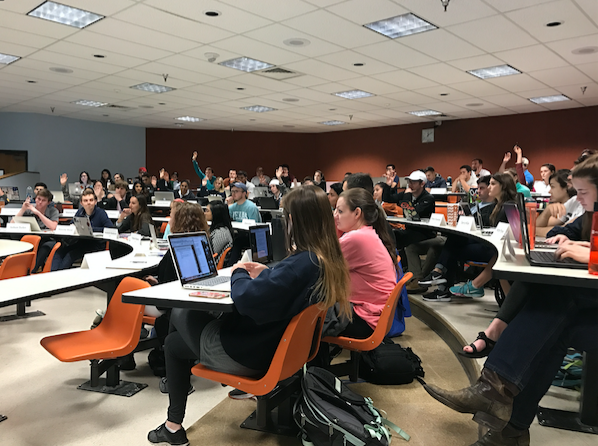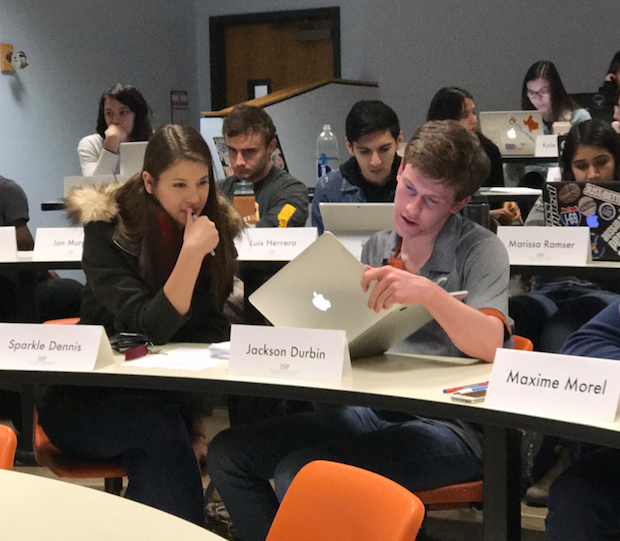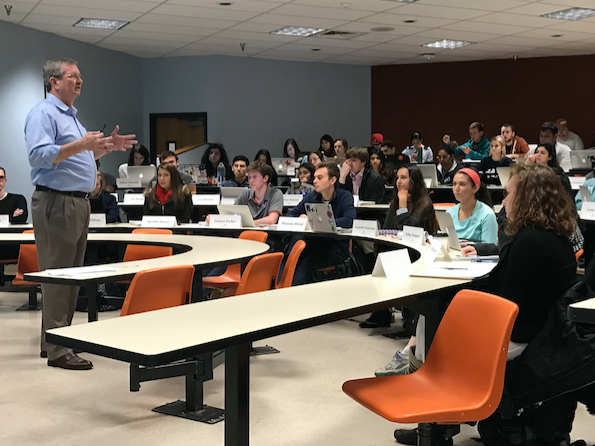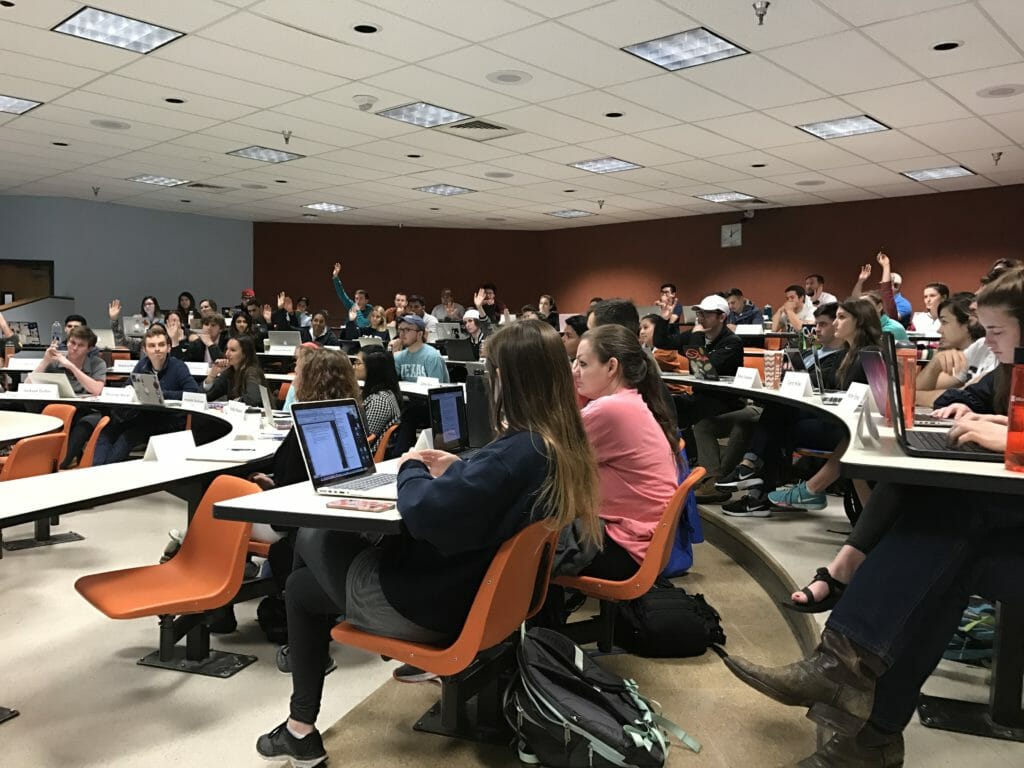
Tuesday, January 17, 2017 marked the start of Professor Paul Pope’s course “Intelligence and National Security Decision-Making.” The course, offered by the LBJ School of Public Affairs and sponsored by the Intelligence Studies Project, provides the first opportunity for UT Austin undergraduates interested in intelligence and national security to gain exposure to experienced scholars and practitioners through coursework.
Professor Pope noted that “ISP aims to bring opportunities to all students across campus, and make sure that anyone who might be interested in public service has access to the education and the highly qualified and experienced intel professionals here at UT Austin.”

The class meetings offer the 98 enrolled undergraduates a glimpse into the dense and complex work of the Intelligence Community in U.S. History, beginning with the crucial and cyclical relationship between intelligence and policy-making. Each week, Professor Pope introduces the students to new intel topics ranging from intelligence successes and failures to analysis, and from structure and reform to the morality of spying.
With the integration of innovative technology and group case studies in the class, Professor Pope is able to engage with all the students in the room and test their developing knowledge on intelligence. For instance, students recently worked together to examine Japanese strategy in the attack on Pearl Harbor, answering questions like “What are Japan’s greatest strengths and weaknesses?” and “What threat do the Japanese carrier forces pose?”

In addition to engaging and thought-provoking curriculum, PA 325 offers students access to lectures by guests like David Priess, a former intelligence briefer in the Clinton and Bush Administrations and the author of The President’s Book of Secrets. Moreover, some of UT Austin’s most distinguished intelligence, national security, policy, and law faculty members visit the class as well.
With only a month of class meetings completed, the success of PA 325 is already evident. In-class discussions are lively, and students are engaged in asking the tough questions, looking for additional research opportunities, and exploring prospects for future careers in public service. Professor Pope and his teaching assistants, Stephen Leland and Dylan Roberts, provide the students with guidance and support on these topics both in and out of class. For instance, on the evening of February 13, Professor Pope held an out-of-class meeting specifically to discuss careers in intelligence with a group of interested students from the course.
Roberts mentioned that one of the most profound benefits of the course for students is their exposure to an instructor like Professor Pope, remarking that, “his résumé and his openness about his career offer the student a rare window into the inner workings of what many believe to be an opaque part of our federal government.”

The remainder of the course will feature other exciting topics, activities, and guest speakers that will only increase the breadth of the students’ understanding of the unique community. One of the core goals of the Intelligence Studies Project is to build a center of study for US intelligence, and expand that to include diverse students and ideas. PA 325 is doing just that.
Check back for more updates on the course in the coming months!



